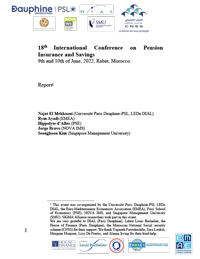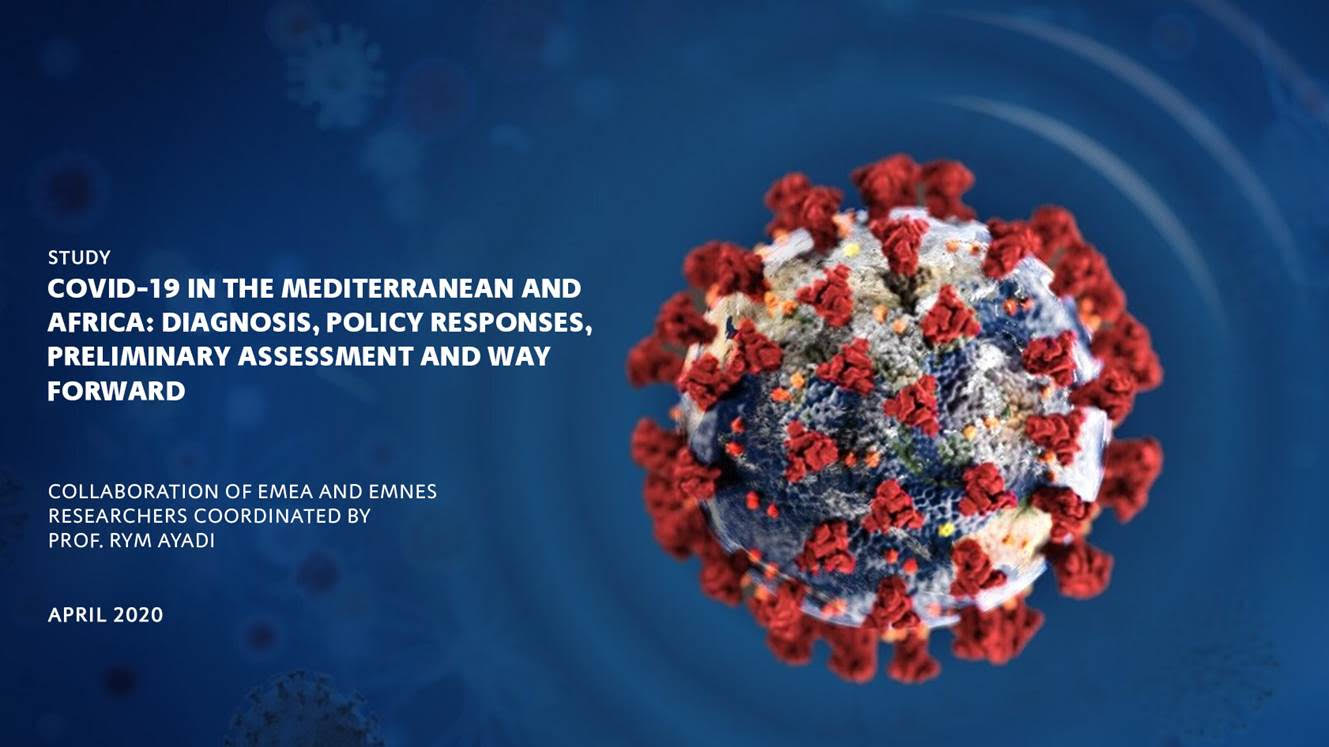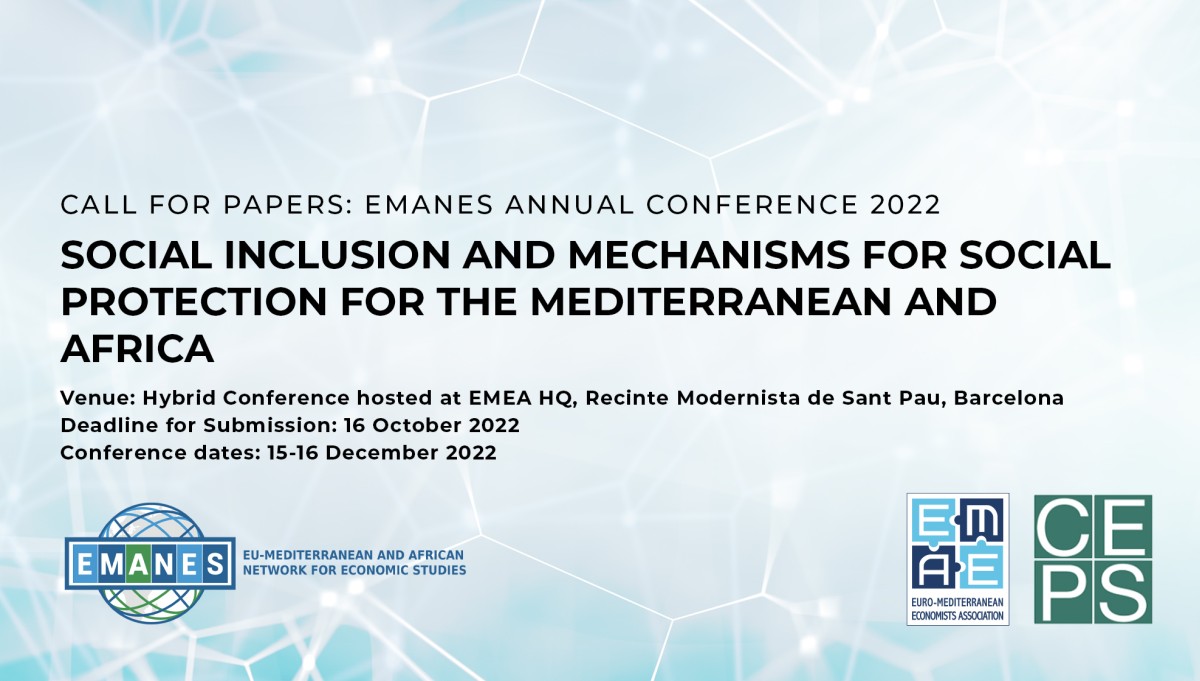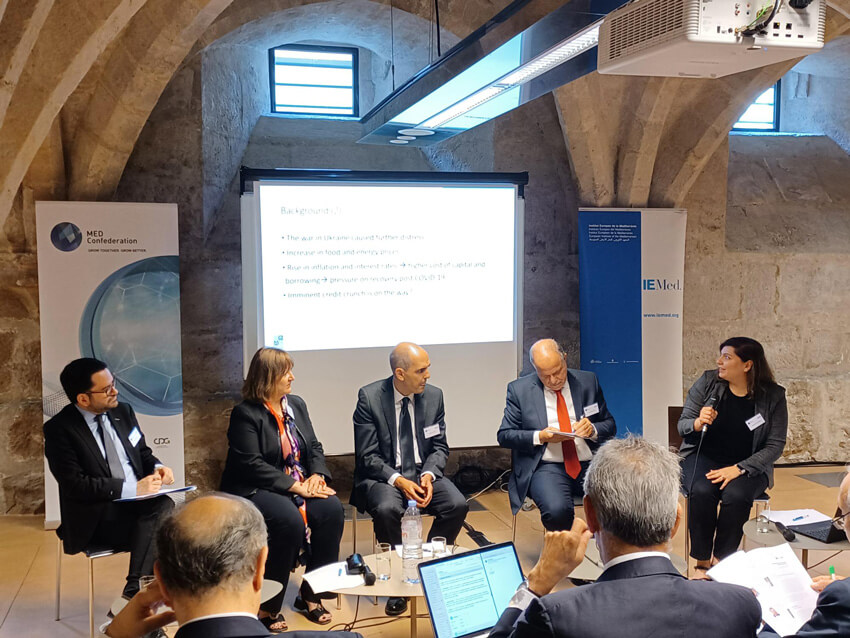The Euro-Mediterranean Economists Association (EMEA) launches a detailed study on the COVID-19 spread in the Mediterranean and Africa
As the world continues to grapple with the coronavirus pandemic, EMEA in collaboration with EMNES have launched a detailed research study into the COVID- 19 spread throughout the Mediterranean and Africa between February and April 2020.
Entitled “Diagnosis, Policy Responses, Preliminary Assessment and Way Forward”, the study is part of an EMEA policy research initiative on COVID-19, first made public on March 18th 2020. It has been led and coordinated by Prof. Rym Ayadi, President of EMEA and Director of EMNES and is the result of collaborative research and contributions from EMEA and EMNES researchers, fellows and experts from across the region.
Providing a comprehensive overview and a set of indicators on the evolution of the viral contagion in the Mediterranean and Africa, it examines the level of preparedness of national healthcare systems. The study explores the policy responses for containing the contagion and for mitigating the socio-economic consequences of the health crisis across ten countries: Italy, Spain, Algeria, Egypt, Ghana, Jordan, Lebanon, Morocco, Palestine and Tunisia.
The study proposes a three-pillar assessment matrix of policy responses, covering preparedness and effectiveness of healthcare systems; completeness and timeliness of COVID-19 containment policies; and comprehensiveness and solidarity of socio-economic mitigation policies.
Referring to the viral contagion that spread from China to Europe and on to the south and east Mediterranean, Africa and other parts of the world, the study observes: “The COVID-19 global pandemic has shown to the world that no governments, from either developed or developing nations, were ready to prevent or to manage such an abrupt external shock.”
Coronavirus had tested “the capacity of our systems resilience”, the study explains, adding: “This shock has proved to be challenging and costly to contain and to manage with uncoordinated and poorly synchronized national policies.
Containing the disease with draconian lockdowns and restrictions on mobility measures had been the preferred options for saving lives – but at a high financial and socio-economic cost and seemingly without considering the global nature of this crisis, the study observed.
“Testing has been lacking everywhere, but particularly in low and middle-income countries, where health systems are relatively weaker compared to highincome countries,” the study reveals.
It recognizes that G20 leaders and international organisations had mobilized several USD trillions to mitigate the economic and social consequences of the health crisis and the draconian containment measures.
But it sustains that policies would be more efficient if better coordinated and synchronised globally, or regionally, to leverage on the experiences of countries and regions that were affected first.
But it questioned whether policies should have been coordinated and synchronized globally, or regionally, to leverage on the experiences of countries and regions that were affected first.
The study says that all countries should further enhance their support to the most vulnerable, such as occasional and informal workers and those most affected by lockdowns, “particularly countries in which the percentage of this category is high.”
Looking ahead, the study warns that whilst containment had led to the flattening of the epidemiological curve, if healthcare systems were not strengthened and personal protective equipment (PPE) was not widely available “the risk of a new outbreak is high and, therefore, lockdown measures cannot be relaxed.”
Yet, at the same time, it also questions what the socio-economic impacts of extending lockdown periods would be, particularly on the poorest and most vulnerable, such as the elderly, disabled and informal workers.
It notes that in several countries in Europe (e.g. Italy and Spain), during the month of April, containment policies were being progressively lifted to ease the pressure on economic activity. “It remains to be seen, however, whether the timing and effectiveness of these policies are adequate,” the study concludes.
With dramatic events surrounding COVID-19 unfolding on a daily, if not hourly basis, EMEA will continue to update policy developments together with the economic and social consequences of the pandemic in the Mediterranean and Africa in order to provide a reference platform for all.
To make this possible, on April 15th, 2020, EMEA launched its online knowledge and research collaborative open-access platform, to faciliate collaborative research on COVID-19. https://research.euromed-economists.org/covid-19/.
Note: EMNES is a network of research institutions and think-tanks working on socioeconomics and policy in the Euro-Mediterranean.
For further information contact: rym.ayadi@euromed-economists.org or info@euromed-economists.org





